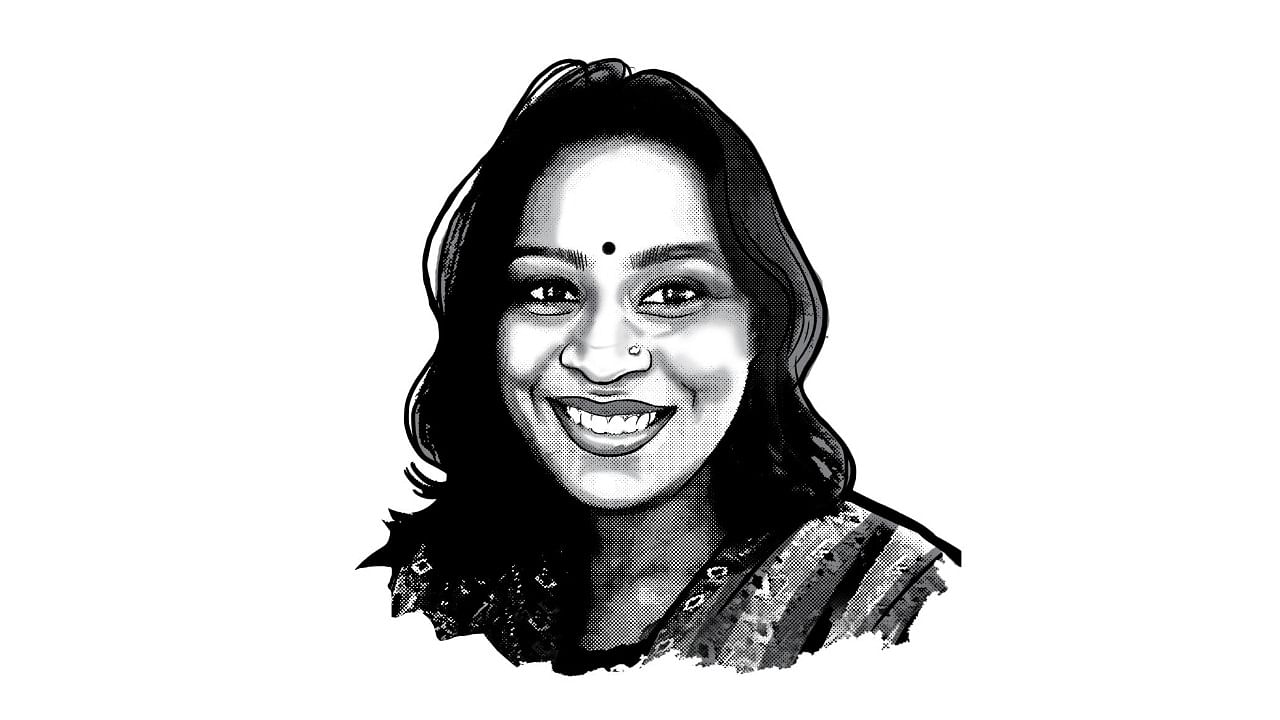
It’s not something we speak about very often in our current socio-cultural settings but maybe we should. I am talking of a way of being, a deep-seated feeling that is understood as ‘I am enough’ or that ‘this is sufficient’ or that ‘nothing more is needed’. Perhaps you know what I’m speaking of?
It’s a somewhat counter-intuitive idea. And using language to describe it could lead to oversimplification. But maybe one could think of it as the opposite (it’s not quite that) of what many of us experience in our inner worlds much of the time. As we go from day to day, sometimes from hour to hour, there’s a sense of being weighed down by the imperative to do more, to become more, to be bigger, perfect, somehow unassailable. It’s underlined by our social and cultural mores -- after all, it’s a society we’ve created -- that push us towards consuming more, achieving more, becoming more powerful. In short, we’re desperately trying to get to the very place we’re discussing -- of ‘being enough’ -- but through a route that is designed to keep us from ever arriving there.
It doesn’t work. Many of us believe in a very visceral way that we’re not good enough, that something is lacking in us, that we’re worthless. It’s the leitmotif of our times, if not of all time. All sorts of identity-centric yearnings for supremacy flow from it, making ours a difficult, difficult world to inhabit. And this is not to even mention how this mindless jostling for more depletes and overburdens the Earth, creating the biggest challenge facing humanity today.
Some may argue that this core lack, this feeling of not being enough, is what sets off the desire to become more in the first place -- as a way to overcome it. Perhaps, this is what the wise ones mean when they speak of ‘desire’ as the root cause of suffering. Yet, while this urge is very much there, I’m also beginning to wonder whether this other thing we’re calling ‘being enough’ also exists in us or, perhaps, even as us. And what helpful possibilities it would open up for us if we could recognise this faculty in us and home into it.
One thing that we may be able to say with some certainty is that we seem to have an intuitive grasp of this feeling/understanding. It comes to us sometimes as an unbidden moment of contentment. Like a song someone might hum absentmindedly while they are at ease, at peace with themselves. As something that unexpectedly allows us to keep down the burden we’ve been carrying around all this while and experience a moment of freedom.
But what if we allowed ourselves to imagine that we don’t have to pick it up again and lug it around wherever we go? What would that look like?
Perhaps it would drop us into a territory that is completely different from what we’re accustomed to -- into a feeling of fullness that is empty of our need to constantly ‘be more’. Perhaps this is the mythical destination called ‘satisfaction’ that we’re after, but we now see that it can’t be reached by acquiring more or doing better, whether in terms of material possessions, relationships or knowledge.
In parting, I must mention the British child psychoanalyst D W Winnicott, to whom I owe the title of this article. According to Winnicott, what children need while growing up is not the ‘perfect’ parent, but what he famously described as the ‘good enough mother’. Perhaps our personalities, marked with pain and loss, are also just that — ‘good enough’, and necessarily so, because we need to move away from them in time so that we can be ‘enough’ in our own right. Not as a turning away from ourselves, but as a going-beyond that allows us to place our personalities and the modes of being we regard as ‘me’ and ‘myself’ in their rightful place. That is, maybe we can be enough of ourselves if we so wish, but also as enough of everything that exists because we’re no longer only about ‘ourselves’. The benefits from this seem endless, whether in terms of our relationship with those close to us, the world at large, or the Earth itself.
Watch the latest DH Videos here:
